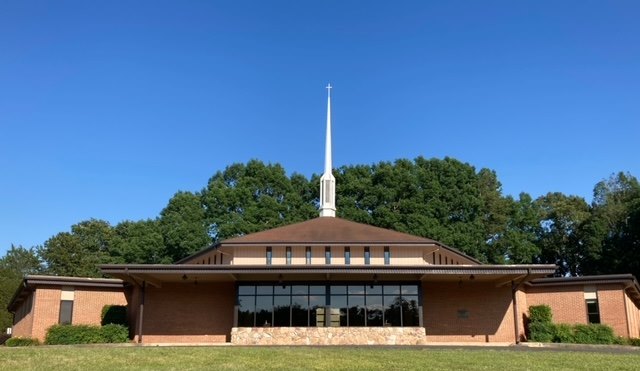Rev. Jeff Walsh
As we are in the beginning stages of a pastoral transition at Dulin’s Grove, we all have many questions: Who might we find for our next pastor? How long will this take? What will change in coming months? Although there is much that we do not yet know, we can trust that God knows and is in control. We should resist the temptation to withdraw from the fellowship or to try to plow ahead too quickly with our own plans.
Background
1 The LORD said to Moses, 2 “See, I have called by name Bezalel the son of Uri, son of Hur, of the tribe of Judah, 3 and I have filled him with the Spirit of God, with ability and intelligence, with knowledge and all craftsmanship, 4 to devise artistic designs, to work in gold, silver, and bronze, 5 in cutting stones for setting, and in carving wood, to work in every craft. 6 And behold, I have appointed with him Oholiab, the son of Ahisamach, of the tribe of Dan. And I have given to all able men ability, that they may make all that I have commanded you: 7 the tent of meeting, and the ark of the testimony, and the mercy seat that is on it, and all the furnishings of the tent, 8 the table and its utensils, and the pure lampstand with all its utensils, and the altar of incense, 9 and the altar of burnt offering with all its utensils, and the basin and its stand, 10 and the finely worked garments, the holy garments for Aaron the priest and the garments of his sons, for their service as priests, 11 and the anointing oil and the fragrant incense for the Holy Place. According to all that I have commanded you, they shall do” (ESV).
At first glance, this may seem like an odd passage to contemplate. The Israelites have just escaped from Egypt and they are now at Mt. Sinai. Moses has received the Ten Commandments as well as detailed instructions on how to construct the Tabernacle, which would be their mobile worship center. The Tabernacle, and later the Temple in Jerusalem, represented God’s presence with them. They also served as a signpost pointing toward the coming Messiah, Jesus Christ.
The Tabernacle was God’s idea and plan, and what God plans for, He also provides for. The materials used in constructing the Tabernacle were many of the same items that the Egyptians willingly handed to the Israelites in the Exodus (12:35-36). The treasures of Egypt were used to provide for God’s design. God also provided the workers needed for the construction.
1) God hand selected those workers.
“I have called by name Bezalel… I have appointed with him Oholiab.”
This wasn’t the only time God selected specific people. Just a few of the others mentioned in the Bible are Samson (Jud. 13), King David (1 Sam. 16), Jeremiah (Jer. 1), and the twelve disciples (Matt. 4 ff). God’s plan continues through the church today, as each one of us is called to make disciples (Matt. 28:18-20).
After Jesus’ death and resurrection, the new Tabernacle is the Body of Christ—the church. In Ephesians 2, the Apostle Paul wrote:
19 So then you are no longer strangers and aliens, but you are fellow citizens with the saints and members of the household of God, 20 built on the foundation of the apostles and prophets, Christ Jesus Himself being the cornerstone, 21 in whom the whole structure, being joined together, grows into a holy temple in the Lord. 22 In Him you also are being built together into a dwelling place for God by the Spirit.
We are the dwelling place for God. We are His workers, chosen by God to do the good works He has prepared for us (Eph. 2:10).
2) God fills His workers with the Holy Spirit.
The primary qualification for God’s work is that we have the Holy Spirit indwelling us. Without the Spirit, our works have no eternal value. Talent alone is not enough to serve God and His church. The work of God is done by the Spirit of God. First Corinthians 12 repeatedly reminds us that every spiritual gift is empowered by the Holy Spirit.
3) God gives the needed skills.
When we start looking for any church workers—whether pastor, deacon, teacher, or any other position—we should not look just at skills and abilities. Skills without God’s calling and the presence of the Spirit are a waste of time and may be destructive to the church. In 1 Timothy and Titus, there are lists of character qualities necessary for pastors and deacons in particular, and most of these also apply to other church leadership positions.
Since God is the one who selects His workers, fills them with His Spirit, and gives the necessary skills, we do not have to be anxious about the future of our church. We need to focus on God rather than on the challenges we are facing. We can be encouraged, because God is not surprised or overwhelmed by anything we may encounter.
Pray for our current leaders to seek God’s will and God’s wisdom for each next step in the process, then trust Him for the results.
“For no one can lay a foundation other than that which is laid, which is Jesus Christ” (1 Cor. 3:11).




